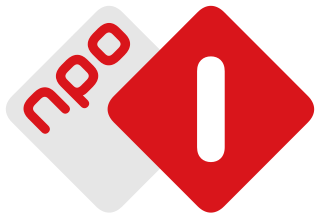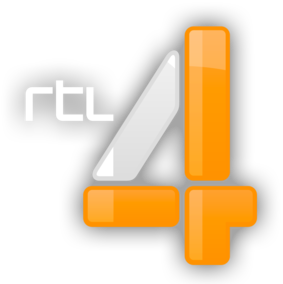Related Research Articles
Television in the Netherlands was officially introduced in 1951. In the Netherlands, the television market is divided between a number of commercial networks, such as RTL Nederland, and a system of public broadcasters sharing three channels, NPO 1, NPO 2, and NPO 3. Imported programmes, as well as news interviews with responses in a foreign language, are almost always shown in their original language, with subtitles.
Digital terrestrial television is a technology for terrestrial television in which land-based (terrestrial) television stations broadcast television content by radio waves to televisions in consumers' residences in a digital format. DTTV is a major technological advance over the previous analog television, and has largely replaced analog which had been in common use since the middle of the 20th century. Test broadcasts began in 1998 with the changeover to DTTV beginning in 2006 and is now complete in many countries. The advantages of digital terrestrial television are similar to those obtained by digitising platforms such as cable TV, satellite, and telecommunications: more efficient use of limited radio spectrum bandwidth, provision of more television channels than analog, better quality images, and potentially lower operating costs for broadcasters.
DVB-H is one of three prevalent mobile TV formats. It is a technical specification for bringing broadcast services to mobile handsets. DVB-H was formally adopted as ETSI standard EN 302 304 in November 2004. The DVB-H specification can be downloaded from the official DVB-H website. From March 2008, DVB-H is officially endorsed by the European Union as the "preferred technology for terrestrial mobile broadcasting". The major competitors of this technology are Qualcomm's MediaFLO system, the 3G cellular system based MBMS mobile-TV standard, and the ATSC-M/H format in the U.S. DVB-SH now and DVB-NGH in the future are possible enhancements to DVB-H, providing improved spectral efficiency and better modulation flexibility. DVB-H has been a commercial failure, and the service is no longer on-air. Ukraine was the last country with a nationwide broadcast in DVB-H.

Telenet Group N.V. is the largest provider of cable broadband services in Belgium. Its business comprises the provision of analog and digital cable television, fixed and mobile telephone services, primarily to residential customers in Flanders and Brussels. In addition, Telenet offers services to business customers all across Belgium and in Luxembourg under its brand Telenet Solutions.

NPO 1 is the first national television station in the Netherlands. It launched on 2 October 1951. It provides public broadcasting and currently exists next to sister channels NPO 2 and NPO 3. A wide range of broadcasting organisations of the Publieke Omroep deliver programs. A wide variety of programs is broadcast on the channel, usually for larger audiences. In 2018, it was the most viewed channel in the Netherlands, reaching a market share of 22.0%.

RTL 4 is a Dutch free-to-air television channel; it is the most-watched commercial station in the country, popular especially with those aged between 20 and 49. RTL 4 is a general entertainment channel with infotainment, television drama, talk shows, game shows, news and talent shows. It is owned by RTL Nederland, a subsidiary of RTL Group. The station has three sister TV channels: RTL 5, RTL 7 and RTL 8, and four thematic TV channels: RTL Z, RTL Lounge, RTL Crime and RTL Telekids.
RTL 7 is a Dutch free-to-cable television channel that was launched as Veronica on 1 September 1995. RTL 7 is RTL Nederland's "men's channel" with action films, reality television about crime and professions, soccer, motorsport and talk shows about sports. During daytime business and financial news channel RTL Z was broadcasting on RTL 7 till RTL Nederland revamped RTL Z into a 24-hours channel on 7 September 2015.

RTL Nederland is a Dutch media network, a subsidiary of the RTL Group. The media company is located in Hilversum, although the licences of its TV-stations are issued by Luxembourg.
DVB-T2 is an abbreviation for "Digital Video Broadcasting — Second Generation Terrestrial"; it is the extension of the television standard DVB-T, issued by the consortium DVB, devised for the broadcast transmission of digital terrestrial television. DVB has been standardized by ETSI.
The Netherlands now has three major forms of broadcast digital television. Terrestrial (DVB-T), Cable (DVB-C), and Satellite (DVB-S). In addition IPTV services are available. At the end of the first quarter of 2013 almost 84% of the households in the Netherlands had some form of digital television.
Television in Belgium was introduced in 1953 and began with one channel each in Dutch and French. The country is heavily cabled, with 93% of households watching television through cable as of 2003.
Digitenne is the Dutch digital terrestrial television platform. It is owned by KPN. Digitenne uses the DVB-T2 standard. The national public television channels NPO 1, NPO 2, NPO 3 and the regional public television channels are free-to-air. For all other television channels a subscription is required.

Film1 is a Dutch premium television and video on demand service that replaced Canal+ and is owned by SPI International.
Rabo Mobiel is a Dutch Mobile virtual network operator. It was launched on 15 November 2006 into a market where 50 virtual network operators were active at the time. Rabo Mobiel runs in cooperation with mother company Rabobank Nederland, offering on postpaid and prepaid mobile telecommunications services, and other mobile banking and payment services.

HD+ is a premium high-definition (HD) satellite television service for German users, owned by HD PLUS GmbH, a subsidiary of SES based in Unterföhring near Munich, Germany.

Digital multimedia broadcasting (DMB) is a digital radio transmission technology developed in South Korea as part of the national IT project for sending multimedia such as TV, radio and datacasting to mobile devices such as mobile phones, laptops and GPS navigation systems. This technology, sometimes known as mobile TV, should not be confused with Digital Audio Broadcasting (DAB) which was developed as a research project for the European Union.

National Geographic Wild is a Pan-European pay television channel that features documentaries produced by the National Geographic Society. It features documentaries about nature, wildlife, natural phenomenon, and earth. The channel replaced Adventure One in Europe on 1 March 2007.
The mass media in Belgium is characterized by its diversity due to the linguistic divide in the country.

Ziggo Holding B.V. is the largest cable operator in the Netherlands, providing digital cable television, Internet, and telephone service to both residential and commercial customers.
Flitsmeister is a Dutch mobile app for Android and iOS that warns its users of speed cameras and other traffic obstacles. It has about 1.7 million active users as of May 2020, which the company defines as users who open the app more than twenty times a month on average.
References
- ↑ "KPN MobielTV introductie" (in Dutch). HDTV Nieuws. May 29, 2008.
- ↑ "KPN stopt met MobielTV via DVB-H" (in Dutch). KPN. March 30, 2011. Archived from the original on July 24, 2011.
- ↑ Michel Lusthof (November 2, 2011). "RTL Nieuws-app voor de iPad met nieuws, video's en live videostream" (in Dutch). iPadclub.
- ↑ Gonny van der Zwaag (January 13, 2012). "RTL Nieuws 365 vanaf 19 januari op de iPad" (in Dutch). iPadclub.